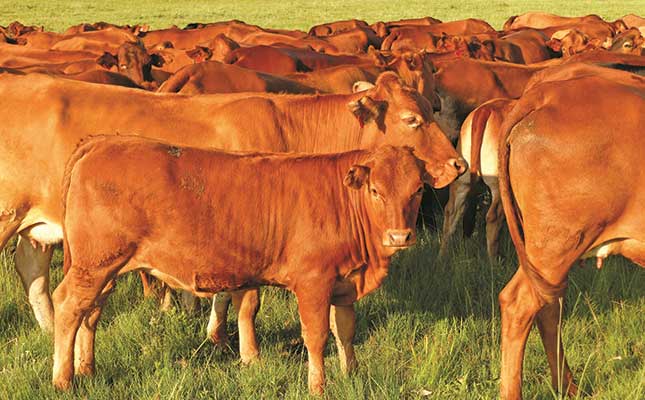
Photo: FW Archive
Didiza’s spokesperson, Reggie Ngcobo, said the decision to suspend all movement of cattle across the country, published in the Government Gazette on Tuesday, 16 August, was made in an effort to halt the continued spread of foot-and-mouth disease (FMD).
“It means that cattle may not be moved from one property to another for any reason [whatsoever] for a period of 21 days, [which will be reviewed] weekly,” said Faber. However, he added that it remained a concern as to what would happen if the spread could not be contained during this period.
READ Genetics-based guidelines to buying a bull at an auction
Didiza reportedly made the decision on Monday evening (15 August) following an emergency meeting convened to discuss the 116 active FMD cases, involving farms, feedlots and communal areas in KwaZulu-Natal, Limpopo, North West, Gauteng, Mpumalanga and the Free State.
“The Minister acknowledges the efforts made by farmers, communities and industries to curb the illegal movement of animals from known positive areas, and to improve biosecurity on animal holdings. However, the disease continues to spread, with 15 new properties and two new provinces affected in the last two weeks alone,” said Ngcobo.
However, Faber said he believed that the sector was not doing enough to stop the spread of FMD.
“The organised red meat industry has pleaded and tried all we could. The media wrote thousands of warnings, but everybody shrugged it off and only moved animals [around] quicker and further. Now we sit with a terrible problem that will only worsen if people don’t change their behaviour.”
READ Your one-stop guide to BLUP breeding values
Ngcobo stressed that any disregard of this ban was a criminal offense. Exceptions would only be made for cattle being transported to be slaughtered at a registered abattoir, or animals to be slaughtered for ritual purposes. In both instances, a veterinary permit would be needed.
“Cattle that are already at shows, auctions and en route to the [country will have] 48 hours to [be moved to their] final destination after being sold. The local state veterinary office should be contacted for these permits,” he said.
Didiza warned in a statement that individuals who illegally moved cattle would be prosecuted for contravention of the Animal Diseases Act No. 35 of 1984.
She said she acknowledged the major disruption that the ban would cause to the normal business of many sectors, and for this reason, the ban was only applicable to the movement of cattle, as this had been identified as the main cause of the continued outbreaks.
However, the public was reminded that all cloven-hoofed animals could spread the virus that caused FMD, and the movement of sheep, goats, pigs and cloven-hoofed game animals needed to be handled with the necessary caution.
Animals showing clinical symptoms, such as salivation, blisters in the mouth, limping or hoof lesions, should not be moved under any circumstances, and members of the public were called on to contact their local District State Veterinary Services or a private veterinarian immediately if they saw animals displaying such symptoms.
#FMD @gcismedia @farmersweeklysa pic.twitter.com/G87QAK6Dng
— Department of Agriculture, Land Ref and Rural Dev. (@DALRRDgov_ZA) August 22, 2022










